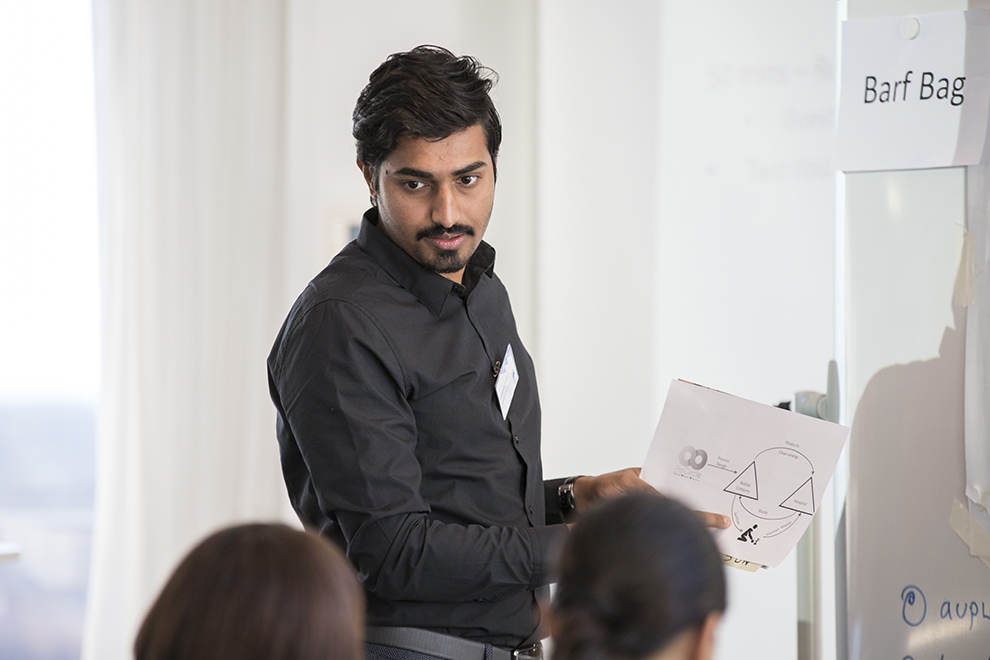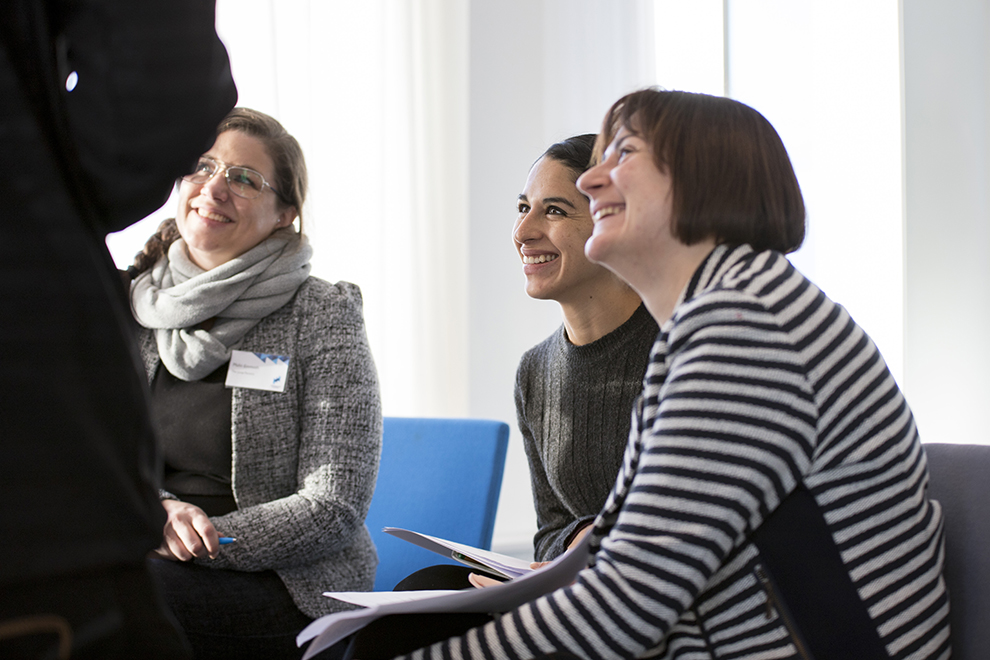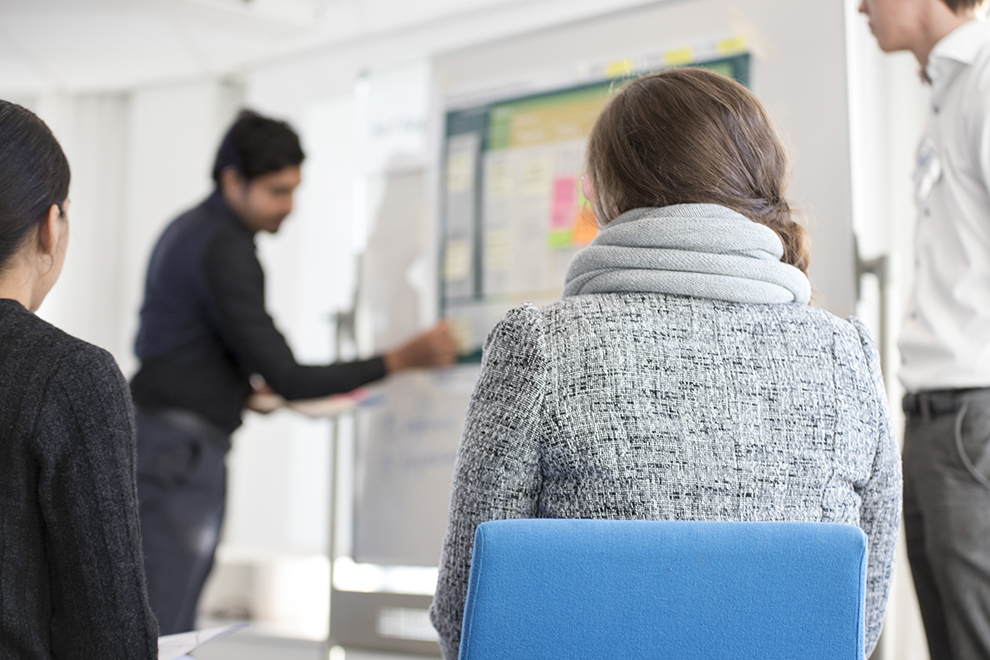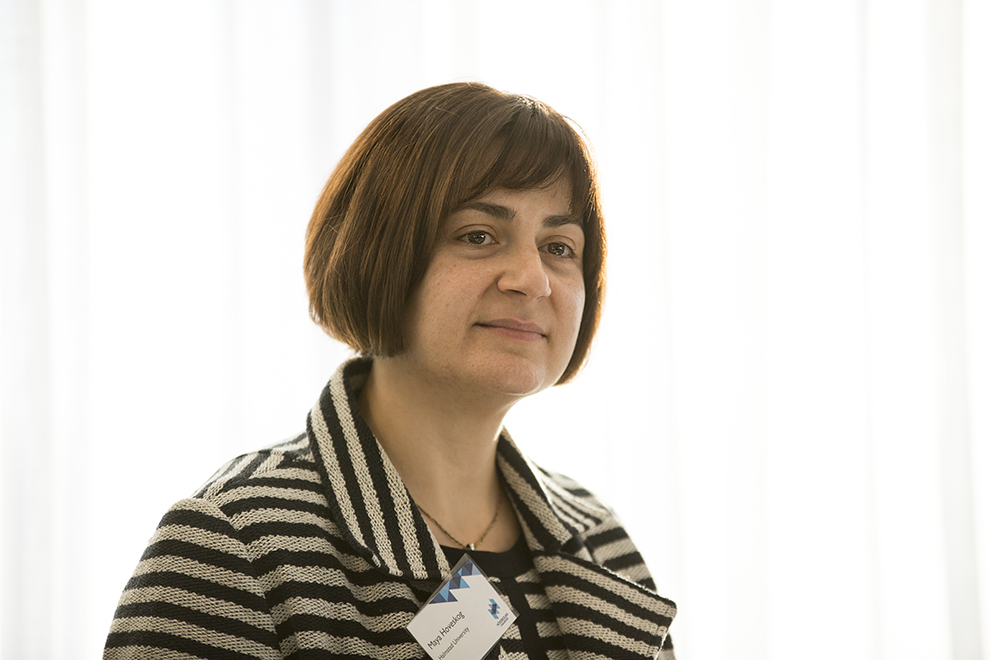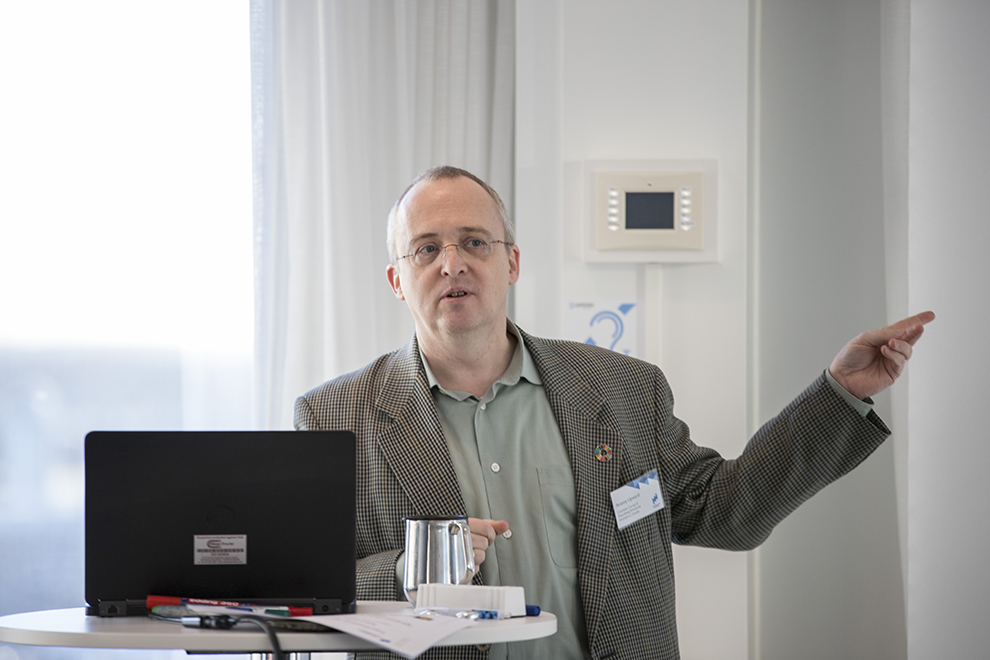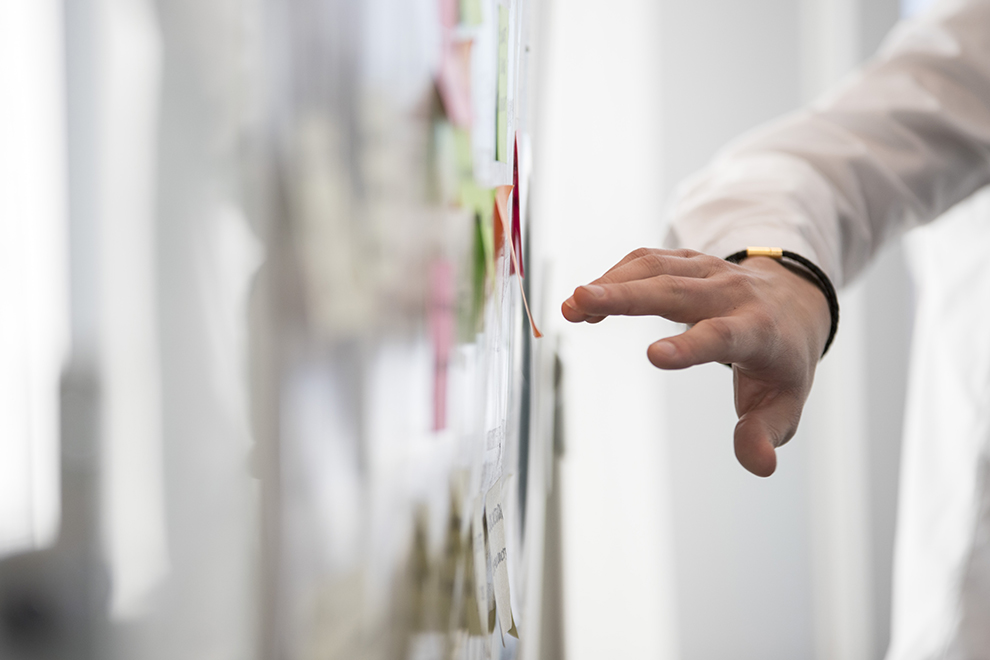Imagining Business Models for a Fossil-Free Future – a Co-Creation Workshop
Are you thinking beyond the short term future of a hotter, more unpredictable world? Do you want to contribute to a better, fossil free future? Do you want to create business models that can be sustainable in the long term? Are you curious to get a taste of one of the latest tools for business modelling, fully considering the social, environmental and economic aspects?
These were the questions asked in order to attract participants to the workshop Imagining Business Models for a Fossil‐FreeFuture, held at Halmstad University at the end of November 2018. The aim of the day was to co-create business models promoting environmentally friendly products that could replace plastics in the health industry of the future.
Complete academic environment
The workshop was part of the course Parallel product and business development, and the students participating were all students on the Master's Programme (120 credits) in Industrial Management and Innovation. The course is taught by Maya Hoveskog, Assistant Professor in Industrial Management at Halmstad University.
”This is not only a learning activity for the students, but also a part of a research project included in the strategic innovation programme Bio-innovation, which is funded by Vinnova. Other partners are Region Halland, Västra Götalandsregionen and the Loop Factory, which is a company that is specialised in developing new sustainable materials. In a similar co-creation workshop at the beginning of the project Region Halland and Västra Götalandsregionen together with the other project partners, have identified what plastic products could be replaced. Both regions also function as test environments for the products. In two courses, the second year master students from the programme have been not only learning how to create a business plan and do business modelling for sustainability, but also contributing to the project by giving concrete suggestions on how the product concepts can be introduced to the market. Those types of activities can contribute to the creation of more complete academic environments. They combine cooperation with industry, research activities and the application of research results to education, which is what we always strive for”, Maya Hoveskog said.
Imagining the future
Antony Upward, adjunct professor and industry partner of Ontario College of art and design University, faculty of design, Canada, and adjunct professor at Halmstad University, welcomed the participants to the workshop by inviting them to imagine the future.
”Welcome to year 2030. This workshop is about creating the future that we think is possible, and that we want. This is going to be a fantastic morning”, Antony Upward said in his opening speech.
The workshop offered the students not only an opportunity to travel through time, but also to practice interacting with external stakeholders, to receive feedback and to adjust their business model accordingly.
”This is a simulation of what it could be like to work with sustainable product and business development. We have asked the students to try to look into the future. Currently, we are working with business models that could be viable in 2030, but at the end of the course, the students are going to be asked to create business models for the year 2050. We are trying to create a vision of the future, and an action plan for how that vision could be realised”, Maya Hoveskog says.
Cutting edge methods
The business models developed were all designed using one of the latest tools for business modelling, called The Flourishing Business Model Canvas. There are several researchers from different disciplines at the School of Business, Engineering and Science who are doing research on business modelling for sustainability. Maya Hoveskog is one of them, and is also participating in action research, working with improving the tool, and the methods for how it could be applied in modelling for sustainability:
”Since this day is a part of a research project, the students are given the opportunity to work with the latest tools within business model design for sustainability. The canvas that we use here today is based on the traditional business model canvas, but it takes on a systemic perspective, taking into account all the different stakeholders, as well as considering environmental and social issues.”
Antony Upward, creator of The Flourishing Business Model Canvas, is also a strong believer of the systemic approach to business design:
”The idea of business model design in general is quite new, and the challenge has been that the tools that have been around so far have been great from an economic perspective, but unfortunately, they have not thought about the system in which the business exists. The question that we have to ask ourselves is: ’What happens if we are interested in business systematically? What questions and what factors need to be considered?’ The flourishing business canvas can help us answer these questions. It positions the business in its full context, taking into account how it will operate socially, environmentally and economically.”
A student perspective
Ganapathy Kenjangada is one of the students participating in the workshop. He was very pleased with the opportunity to get feedback on his ideas:
”The workshop was very interesting and insightful, as we had to present our ideas with the help of The Flourishing Business Model Canvas in front of its creator Antony Upward. This provided a rare opportunity because, who better to critic than the person who invented the model? Also getting insights from external stakeholders and practitioners with great industry experience was very helpful.”
Peter Uppman, innovation strategist at Region Halland, acted as the facilitator for one of the presenting groups. He hopes that the workshop resulted in both students and the participating external actors gaining insight in what different sustainability aspects have to be taken into account in order for a business to be successful in the future.
”The whole day was really about thinking outside the box, imagining what business will look like in the future, and I hope that all participants feel that what we have done here today has been useful”, Peter Uppman said.
Text: Christa Amnell
Photo: Ida Fridvall
Read more
The strategic innovation programme Bio-innovation External link, opens in new window.
External link, opens in new window.
Renewable products for tomorrow's healthcare
Project in short: The goal of the project is to define the design, and corresponding business models, of at least two products, with hospital applications as niche market; aiming at larger scale international markets. The project makes use of test beds in public hospitals in combination with material innovations from the Swedish forest industry and novel innovation processes in order to generate bio-based products that are developed from real customer needs. The raw material used in the products contains a unique combination of renewable ingredients, and its functionality corresponds to that of conventional plastics. This is attractive for hospitals due to the material´s potential to substitute plastic one-time items by a renewable alternative.
Project partners: Region Halland, The Loop Factory (TLF), Västra Götalandsregionen and Halmstad University.
Participants from Halmstad University: Per-Ola Ulvenblad, Maya Hoveskog and Henrik Florén
Halmstad University, School of Business, Engineering and Science – an unusual business school
At Halmstad University’s School of Business, Engineering and Science, professors of business, innovation and entrepreneurship work side by side with professors of science, for instance of biology and ecology. This is rather unusual, since business studies are usually considered to belong with humanities.
”Combining researchers from the different fields gives rise to very interesting trans-disciplinary research, which of course is absolutely necessary to do anything useful in the real world, because the world isn’t nicely divided up by the disciplines”, says Antony Upward.

